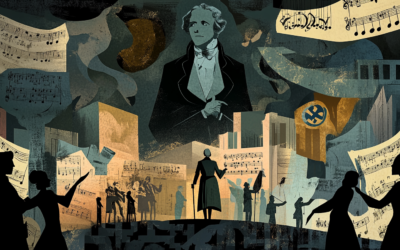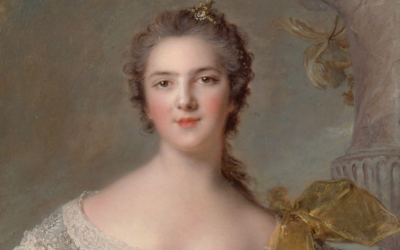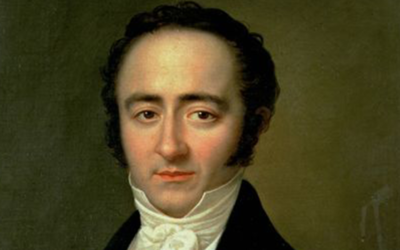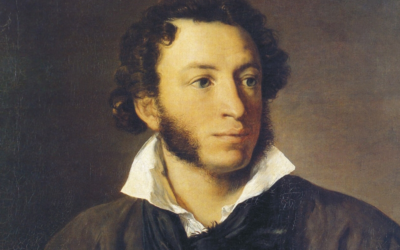Mozart's K 73A
A Mystery Wrapped in Ambiguity
The aria K 73A, listed in the Köchel catalogue as a work by Mozart, remains an enigma. With scant evidence, vague references, and no autograph to confirm its authenticity, one must wonder how such a piece earned a place in the prestigious catalog.
Mozart in Italy: The Untold Story
Was Mozart truly a solitary genius, or was he merely the instrument of his father’s ambition? “Mozart in Italy” challenges the conventional narrative, revealing a complex dynamic between father and son that shaped the course of music history. Prepare to question everything you thought you knew.
“When a name becomes a brand, the truth about its products tends to be obscured.”
Mozart in Italy
The aria “Misero tu non sei” (Wretched thou art not) is listed in the Köchel catalogue under Mozart’s name, yet little is definitively known about it. What we do know is that the text—”Misero tu non sei”—is borrowed from Metastasio’s Demetrio, a detail that leaves no room for doubt about the real author of the libretto. But the supposed composer? That’s where things get murky.
A lone reference in a letter dated January 26, 1770, where Mozart casually mentions starting the aria, offers no further clarification. Whether he was composing it for himself or copying it from his father remains entirely speculative. No manuscript has ever surfaced to authenticate Mozart’s authorship, and the aria’s precise instrumentation, key, and movements are as elusive as its origins. Yet, despite this glaring lack of solid evidence, it continues to hold its place in the official catalogue of Mozart’s works, under the designation K 73A.
Why, then, does this aria persist in being associated with Mozart? The answer likely lies not in musical innovation or compelling historical documentation, but in the strength of the mythos surrounding Mozart’s name. The absence of an autograph, the speculative nature of the evidence, and the questionable provenance should render this aria a footnote at best, yet it occupies an oddly secure spot in the annals of his supposedly vast oeuvre.
As is often the case with works attributed to Mozart, the true nature of this aria becomes less about its merit and more about its association with a figure whose name has, for centuries, been enshrined as the pinnacle of musical achievement—an association that may be more about preserving an image than accurately cataloguing historical fact. The inclusion of K 73A in the Köchel catalogue is less a testament to Mozart’s compositional prowess and more a reflection of the enduring power of Mozart’s legend, for which musical truth is often a secondary concern.
At the end of the day, Misero tu non sei may serve as yet another example of how Mozart’s name—regardless of the evidence—continues to overshadow the true origins of many pieces, a legacy built not just on music, but on myth.
You May Also Like
The Kolb Concerto: A Mozartian Mirage?
The Kolb Concerto’s dubious origin and poor musical quality expose yet another myth in the Mozartian canon. If this is the work of a genius, then perhaps we’ve been fooled for centuries.
The Adélaïde Deception: Mozart’s “Lost” Violin Concerto and the Art of Musical Forgery
In the early 20th century, the “discovery” of Mozart’s sixth violin concerto in Paris created a sensation. Dubbed the Adélaïde Concerto and supposedly written for Madame Adélaïde of France, it was hailed as a testament to Mozart’s genius. However, as the story unfolds, it becomes clear that this masterpiece was not the work of the child prodigy but rather a carefully orchestrated hoax by Marius Casadesus. Despite its unmasking as a forgery, the concerto continues to captivate audiences, raising questions about authenticity and the music industry’s willingness to deceive for profit.
Mozart and the Nationalist Illusion: The 1931 Festival and Its Legacy
The Salzburg Festival, far from being a mere celebration of Mozart’s genius, was born out of nationalist ambitions during a turbulent period in Austro-German history. Conceived by figures like Max Reinhardt, Heinrich Damisch, and Friedrich Gehmacher, the festival was deeply rooted in ultranationalistic ideals, transforming Mozart’s legacy into a tool for cultural dominance. The truth behind its founding has long been obscured, but the primary sources tell a different, darker story.
K.6 and K.7 Sonatas: A Fabricated Genius?
The earliest sonatas of Wolfgang Amadeus Mozart, K.6 and K.7, are traditionally seen as proof of his precocious genius. But as we explore the murky origins of these works, we find that they may be more a product of Leopold Mozart’s ambition than Wolfgang’s musical talent. The truth, as always, lies somewhere between the notes.
Georg Nissen and the Missing Notebooks – Part II
This second part delves deeper into Georg Nissen’s scheme to expose the truth about Mozart’s death, and the roles of Constanze Mozart and her sons in keeping it buried. As new details emerge, the mystery surrounding the famous composer’s final days grows even darker, with powerful forces potentially at play.
Mozart and Salieri
Pushkin does not see Salieri as a mere mediocre. In fact, Salieri embodies the struggle of the artist, much like Michelangelo, who reaches greatness through relentless effort. Pushkin himself identifies with both Mozart and Salieri, but he emphasises that true art demands work, discipline, and sacrifice. In poisoning the Mozartian element within himself, Salieri performs a service to art, freeing it from the frivolity of effortless genius. ‘Can genius and malice coexist?’ Pushkin’s answer is complex, but in the end, Salieri’s act seems to affirm that true creation lies in the hands of those who strive.







